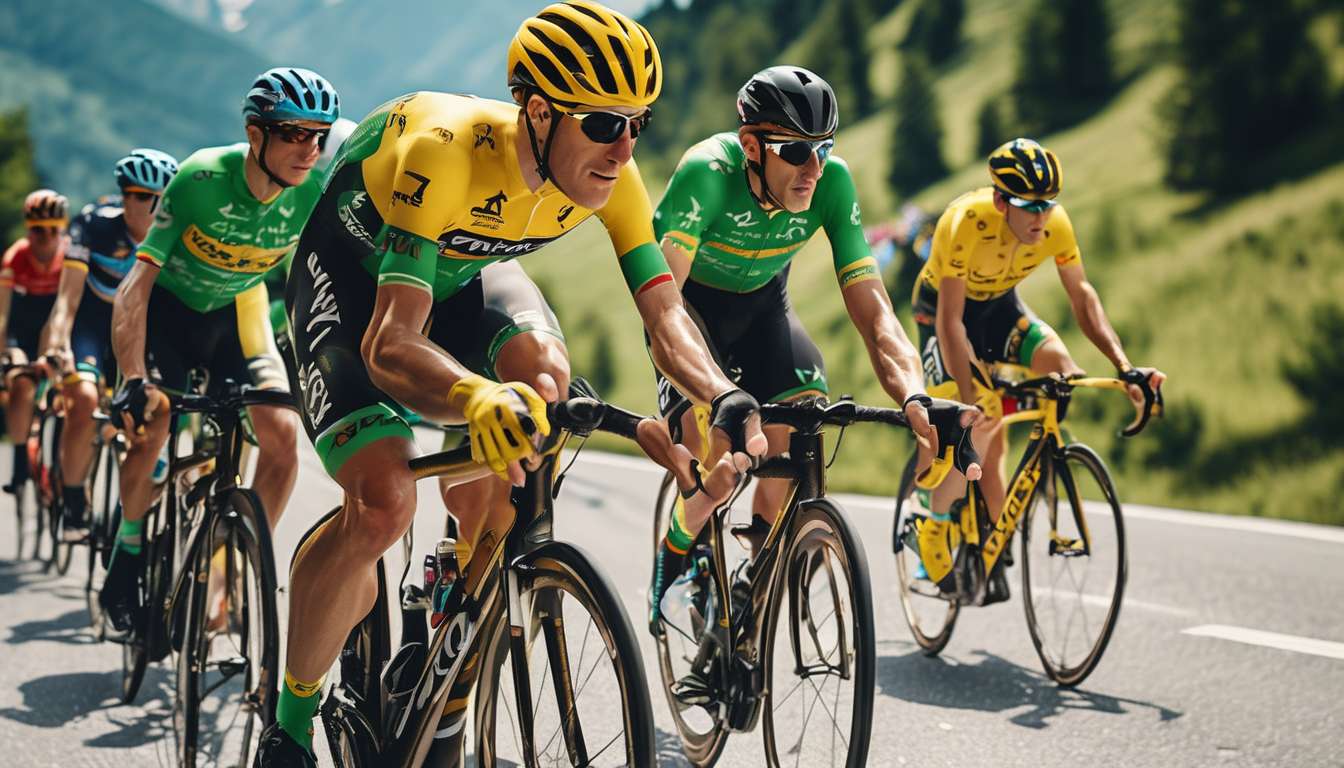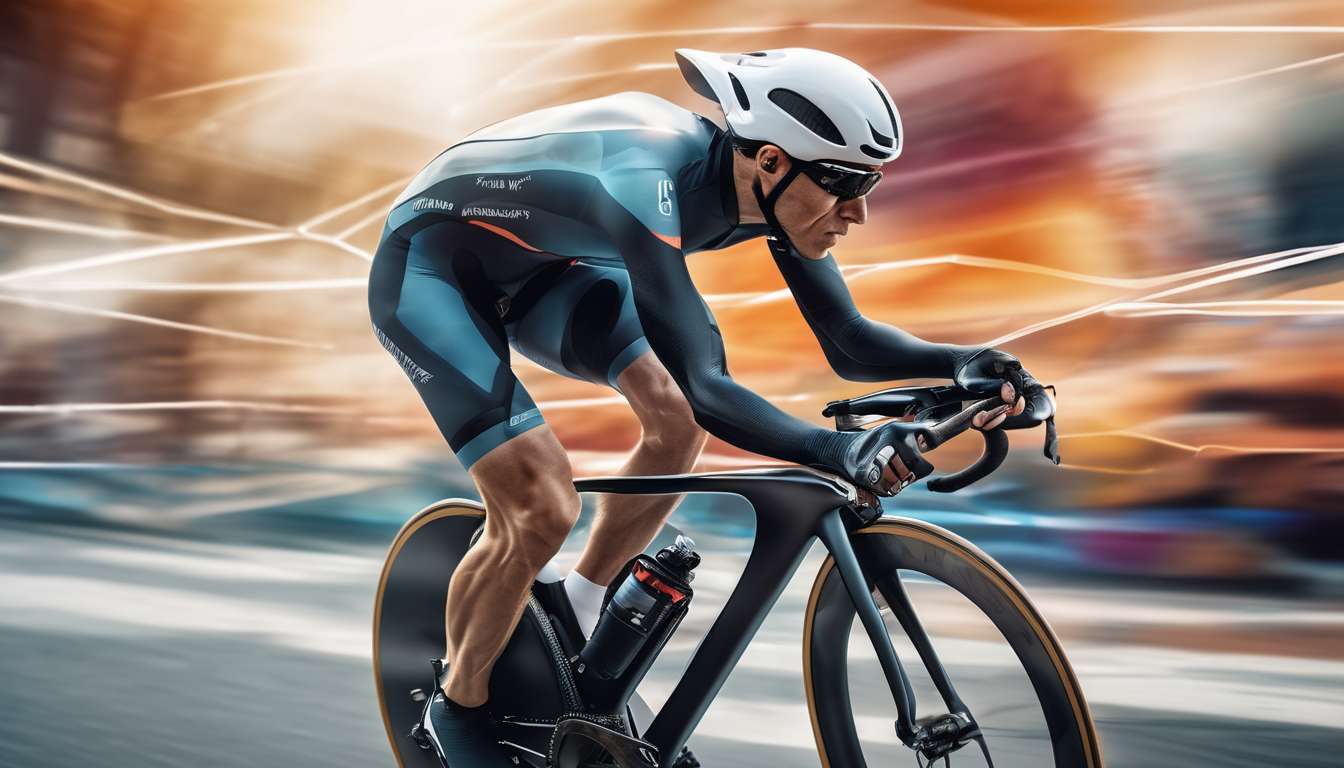As passionate cycling enthusiasts and analysts, we are drawn to the exhilarating world of the Tour de France, where strategy, endurance, and sheer willpower converge on the roads of France. Together, we embark on a quest to unravel the complexities of predicting this iconic race, where every stage presents its own set of challenges and surprises.
Our exploration delves into the intricate details of:
- Rider Performance
- Team Dynamics
- Unpredictable Weather Conditions
These elements can dramatically alter the outcome of the race. By combining historical data with cutting-edge analytical tools, we aim to uncover patterns and insights that can guide enthusiasts and bettors alike in making informed predictions.
Join us as we journey through the ultimate guide to Tour de France predictions, where science meets passion. Every pedal stroke propels us closer to understanding the elements that define a champion in this prestigious cycling event.
Historical Performance Trends
Over the years, we’ve observed that certain teams consistently dominate the Tour de France due to their strategic prowess and outstanding individual performances. Our shared passion for this iconic race drives us to decode the patterns of success that these teams display. By examining historical performance, we uncover the essential elements that contribute to their repeated triumphs.
Utilizing a data-driven analysis, we can identify how past races inform current strategies. Teams meticulously plan each stage, capitalizing on previous experiences and statistical insights.
- This approach fosters a sense of community among those of us who appreciate the intricate dance of teamwork and strategy in cycling.
Team strategies are pivotal, as they unite riders behind a common goal, ensuring that each member plays their part in the grand scheme. Together, we delve into these strategies, gaining a deeper understanding of how they adapt and evolve to meet the ever-changing demands of the Tour.
This shared knowledge strengthens our bond as fans and analysts alike.
Key Factors Affecting Predictions
Several critical elements shape our predictions for the Tour de France, including weather conditions, rider health, and team dynamics.
Historical Performance provides a foundation, offering insights into how riders have fared under similar circumstances in past races. Yet, we can’t overlook the current season’s unique challenges.
Weather can significantly influence a stage, favoring some riders while hindering others. It is crucial to consider how different weather conditions can impact the race dynamics and rider performance.
Rider health is another vital factor. Injuries or illnesses can derail even the most promising contenders. We closely monitor these aspects, understanding that:
- A rider’s current health status can determine their ability to compete effectively.
- A team’s ability to adapt to health challenges can make or break their Tour ambitions.
Team Strategies also play a pivotal role. A well-executed plan, informed by Data-Driven Analysis, can disrupt competitors and secure victories. Each team’s approach needs to be flexible, accounting for unexpected developments on the road.
Together, by considering these elements, we deepen our understanding and enhance our predictions, fostering a sense of belonging within this passionate community of cycling enthusiasts.
Data-Driven Analysis Techniques
Incorporating Advanced Analytical Tools
By harnessing vast datasets, we refine our Tour de France predictions with precision and insight. Diving into historical performance metrics allows us to identify patterns that might not be immediately apparent.
This data-driven analysis enables us to predict how riders might perform across various stages and conditions, creating a deeper connection with the race’s unfolding drama.
Beyond Numbers: Examining Team Strategies
Our approach extends beyond mere numbers. We closely examine team strategies, which are crucial to understanding potential outcomes. Analyzing past tours, we look at:
- How teams have adapted their tactics.
- Anticipating their future moves.
- The context of the competition, focusing on collaboration and rivalry.
Engaging with the Race Strategically
By using these techniques, we don’t just predict winners. We engage with the race on a strategic level, uncovering the intricate dance of teamwork and individual brilliance that makes the Tour de France so captivating.
In-depth Rider Evaluation Methods
To truly understand a rider’s potential, we delve into their physiological metrics, race history, and psychological resilience.
Analyzing a rider’s historical performance provides insights into how they’ve fared against diverse terrains and conditions. This isn’t just about numbers; it’s about understanding their journey and growth in the sport we all cherish.
Our data-driven analysis approach lets us assess these metrics with precision. We track:
- Power outputs
- Endurance levels
- Recovery rates
This ensures we have a comprehensive view. This quantitative analysis is crucial, yet it’s the stories behind the data that truly resonate with us. The camaraderie, the struggles, and the triumphs make the Tour de France a spectacle we’re all passionate about.
Team strategies also play a pivotal role in a rider’s success. While individual talent is essential, we recognize that a well-coordinated team can elevate a rider’s performance. By evaluating these elements together, we anticipate not just outcomes but the shared experience of the race.
Team Strategies & Collaborations
A well-orchestrated team strategy can be the decisive factor that propels a rider to victory in the Tour de France. We’ve seen time and again that individual talent isn’t enough. Teams that blend historical performance with data-driven analysis create strategies that maximize their collective strengths. Our community thrives on witnessing these alliances, where each member plays a crucial role in the race’s outcome.
By delving into historical performance, we understand the nuances of successful team strategies. Key insights emerge from past races, allowing us to anticipate potential scenarios. Teams meticulously analyze data to determine:
- When to support their leader
- When to conserve energy for critical stages
Through collaboration, they optimize each rider’s contribution, ensuring the team’s success.
In our shared passion for the Tour, we recognize that it’s not just about the riders. It’s about the seamless collaboration and strategic prowess of the teams that captivate us, uniting us in our love for this iconic race.
Impact of Mountain Stages
Mountain stages in the Tour de France often serve as the ultimate test of a rider’s endurance and climbing prowess, dramatically influencing the overall race outcome. These stages aren’t just about individual strength; they’re about collective strategy and resilience.
Historical Performance and Champions
We can look at historical performance to understand how mountain stages have shaped champions. Legendary riders have conquered these grueling ascents, etching their names into Tour history.
Data-Driven Predictions
Using data-driven analysis, we can predict which riders might excel in these demanding stages. By analyzing:
- Past performances
- Current form
- Elevation profiles
we can identify potential frontrunners.
Team Strategies
We know that team strategies play a crucial role, too. Teams that effectively utilize domestiques to:
- Shield their leaders from wind
- Manage pace
can make all the difference.
Appreciation of Mountain Stages
Together, we can appreciate how these mountain stages are more than just segments of the race; they’re pivotal moments that test the mettle of competitors and bring us, the fans, closer to the heart of professional cycling.
Significance of Time Trials
Time trials in the Tour de France are crucial moments that can significantly alter race standings and test a rider’s solo capabilities against the clock. These stages are not solely about individual prowess; they involve understanding historical performance and leveraging that knowledge.
Data-Driven Analysis:
A thorough analysis of past time trials provides patterns and insights that help predict which riders might excel.
- By examining riders’ past performances, we can identify those with a talent for time trials.
- This analysis allows us to anticipate their impact on the overall race.
Team Strategies:
Though the rider competes against the clock alone, the preparation involves extensive planning and support from the entire team.
- Teams analyze every detail, from equipment choices to pacing strategies.
- This ensures that their rider is primed for success in the time trial.
Together, these elements highlight the intricate balance of skill, strategy, and data, making time trials a thrilling and essential part of the Tour de France journey.
Weather Forecasting for Precision
Accurate weather forecasting plays a pivotal role in Tour de France strategy, influencing everything from a rider’s clothing choices to their race tactics.
When we analyze a rider’s historical performance, we see how different weather conditions have impacted their outcomes. By understanding these patterns, our team can develop data-driven analysis to anticipate similar conditions during the race. This approach allows us to predict how weather might affect riders’ performances and make informed decisions.
Our strategies aren’t just about reacting to weather changes; they’re about anticipating them. We use advanced meteorological data to craft team strategies that optimize our performance.
For instance, if rain is forecasted, we might:
- Choose wheels with better grip
- Adjust our pacing strategy
Embracing this meticulous planning helps us feel connected to the race, as we navigate it with precision and foresight. Together, with the right insights, we can turn weather challenges into competitive advantages.
How do advancements in sports science and technology influence Tour de France predictions?
Advancements in sports science and technology have a significant impact on Tour de France predictions. These innovations offer valuable data that enhance our understanding and forecasting capabilities.
Key contributions include:
-
Performance Analysis: Detailed data on athletes’ performance allows for precise evaluation of their strengths and weaknesses.
-
Training Techniques: Insights into cutting-edge training methods help in assessing how well-prepared cyclists are for the challenges of the race.
-
Equipment Optimization: Information on the latest equipment innovations ensures that predictions account for technological advantages that can affect race outcomes.
By analyzing this comprehensive information, we can make more accurate forecasts about race results. These advancements not only keep us ahead of the game but also enable informed decision-making when predicting Tour de France outcomes.
What role do nutrition and diet play in a rider’s performance and how can they affect predictions?
Nutrition and diet are crucial for a rider’s performance in the Tour de France. They directly impact energy levels, endurance, and recovery.
By fueling our bodies with the right nutrients, we can:
- Optimize performance
- Increase chances of success
Predictions can be influenced by a rider’s nutrition habits. Riders who prioritize proper fueling are likely to have better results compared to those with poor dietary choices.
How does media coverage and public perception impact the morale and performance of riders, potentially altering predictions?
Media coverage and public perception greatly influence a rider’s morale and performance, which can shift predictions.
- Positive portrayals can boost confidence.
- Negative scrutiny may create added pressure.
As a team, we understand the impact of external factors on riders. We believe that:
- Managing media attention is crucial.
- Fostering a supportive public image is essential.
These strategies are important in maintaining optimal performance levels throughout the Tour de France.
Conclusion
As you wrap up your Tour de France predictions analysis, remember to consider multiple aspects for accurate insights.
Historical Trends:
- Review past races to identify patterns and recurring outcomes.
Key Factors:
- Pay attention to elements such as rider form, team dynamics, and course difficulty.
Data-Driven Techniques:
- Utilize statistical models and machine learning to analyze rider performance and race conditions.
Rider Evaluations:
- Assess individual riders based on their current season performance and past race records.
Team Strategies:
- Examine how different teams approach the race and their strategies for both flat and mountainous stages.
Mountain Stages and Time Trials:
- Analyze the impact of mountain stages and time trials on overall standings and individual performances.
Weather Forecasts:
- Consider how weather conditions can affect race outcomes and rider performance.
By utilizing a comprehensive approach, you can enhance your predictions and make informed decisions. Stay focused, stay analytical, and enjoy the excitement of the race ahead.
Get ready to witness the thrill of the Tour de France unfold with your newfound predictive strategies.




